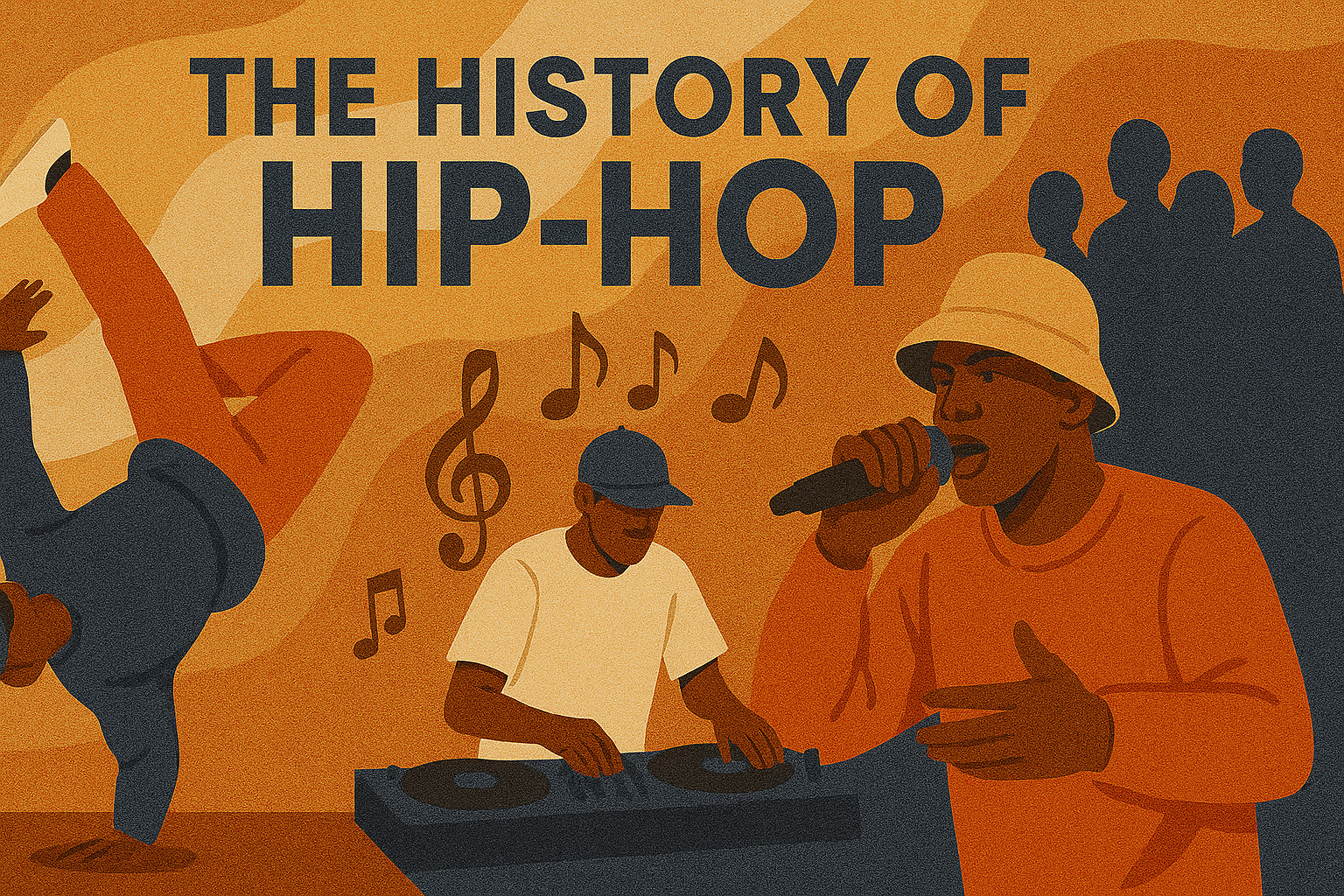Hip hop, like jazz, is deeply connected to the legacy of the transatlantic slave trade — not directly in its historical timeline, but through the enduring cultural, social, and political consequences of that forced migration and enslavement. Here’s how:
Cultural Roots in the African Diaspora
- The transatlantic slave trade dispersed African peoples, cultures, and musical traditions across the Americas.
- Hip hop draws heavily from African oral traditions: storytelling, rhythm, and communal participation — all essential elements in African griot culture and call-and-response patterns.
- These elements were preserved and evolved through spirituals, blues, jazz, gospel, funk, and soul — all of which are ancestral to hip hop.
Rhythm and Resistance
- African music emphasized polyrhythms, drums, and improvisation, and these became the backbone of Black musical innovation in the Americas.
- The DJ’s breakbeats and the MC’s lyrical flow in hip hop reflect this rhythmic lineage.
- Hip hop is part of a long tradition of using rhythm and voice as tools of survival and resistance, going back to the songs of enslaved people.
Legacy of Oppression and Marginalization
- The communities that birthed hip hop — notably the Bronx in the 1970s — were shaped by centuries of structural racism rooted in slavery’s aftermath:
- Segregation
- Economic disenfranchisement
- Police brutality
- Cultural erasure
- Segregation
- Hip hop emerged as a form of protest, self-expression, and cultural reclamation in the face of this ongoing oppression.
Oral Tradition and the Power of the Word
- Enslaved Africans were often denied literacy, so oral culture remained a dominant form of knowledge transmission and resistance.
- Hip hop continues this legacy:
- MCing (rapping) = poetic storytelling, commentary, and social critique
- Battling and cyphers = modern manifestations of traditional verbal duels and communal performance in African societies
- MCing (rapping) = poetic storytelling, commentary, and social critique
Global Diaspora and Return
- Just as the slave trade created a global African diaspora, hip hop has become a global voice of the oppressed — from Brazil to Senegal to the Philippines.
- Artists around the world use hip hop to reclaim African heritage, speak truth to power, and assert cultural pride, just as African descendants in the Americas have done for centuries.
In Summary:
Hip hop is not a direct product of the transatlantic slave trade, but it is deeply shaped by the historical and cultural legacy of that era:
- It carries forward African musical and oral traditions,
- It responds to the social and economic conditions created by slavery and colonialism,
- And it serves as a modern vehicle for resistance, identity, and empowerment within the African diaspora.
